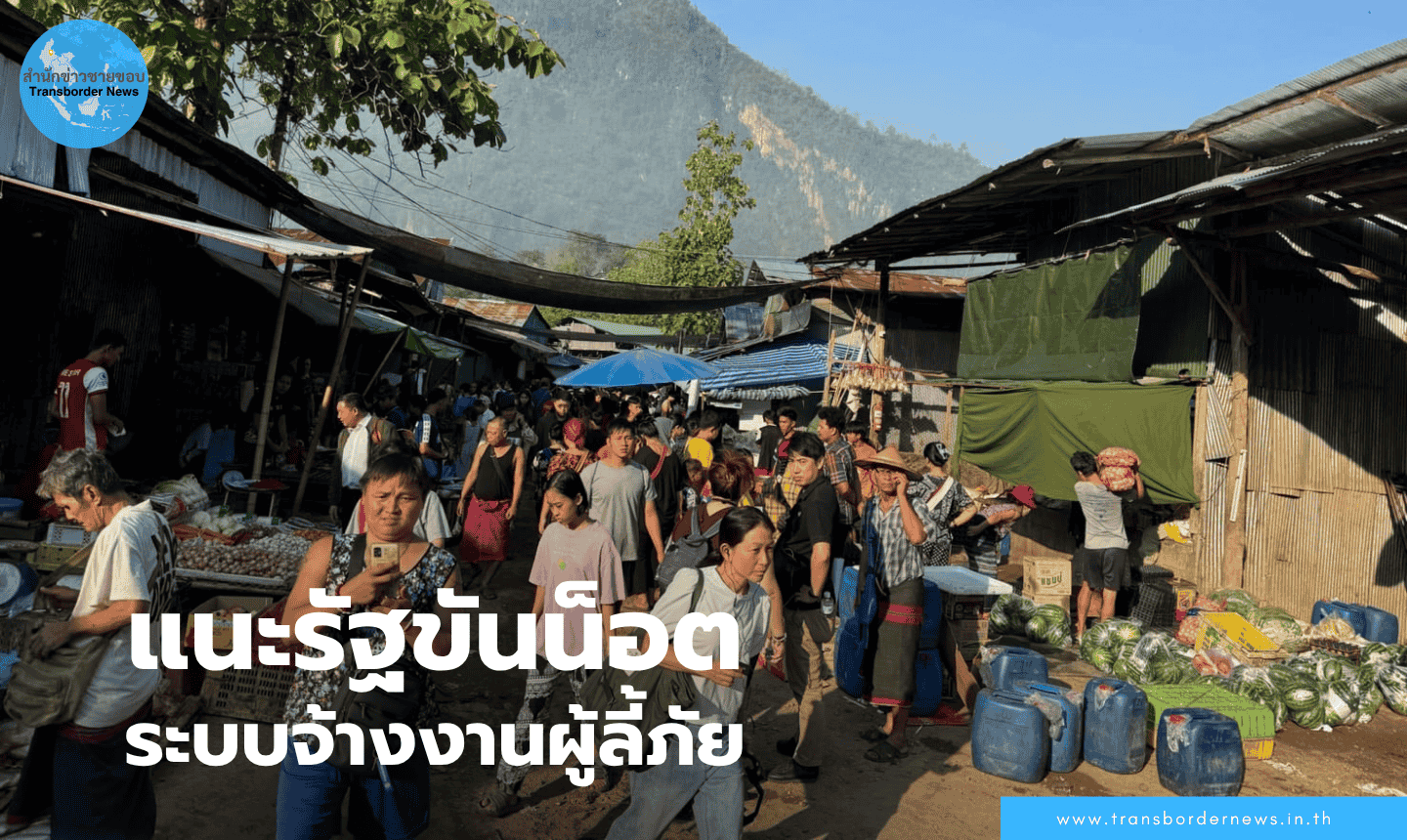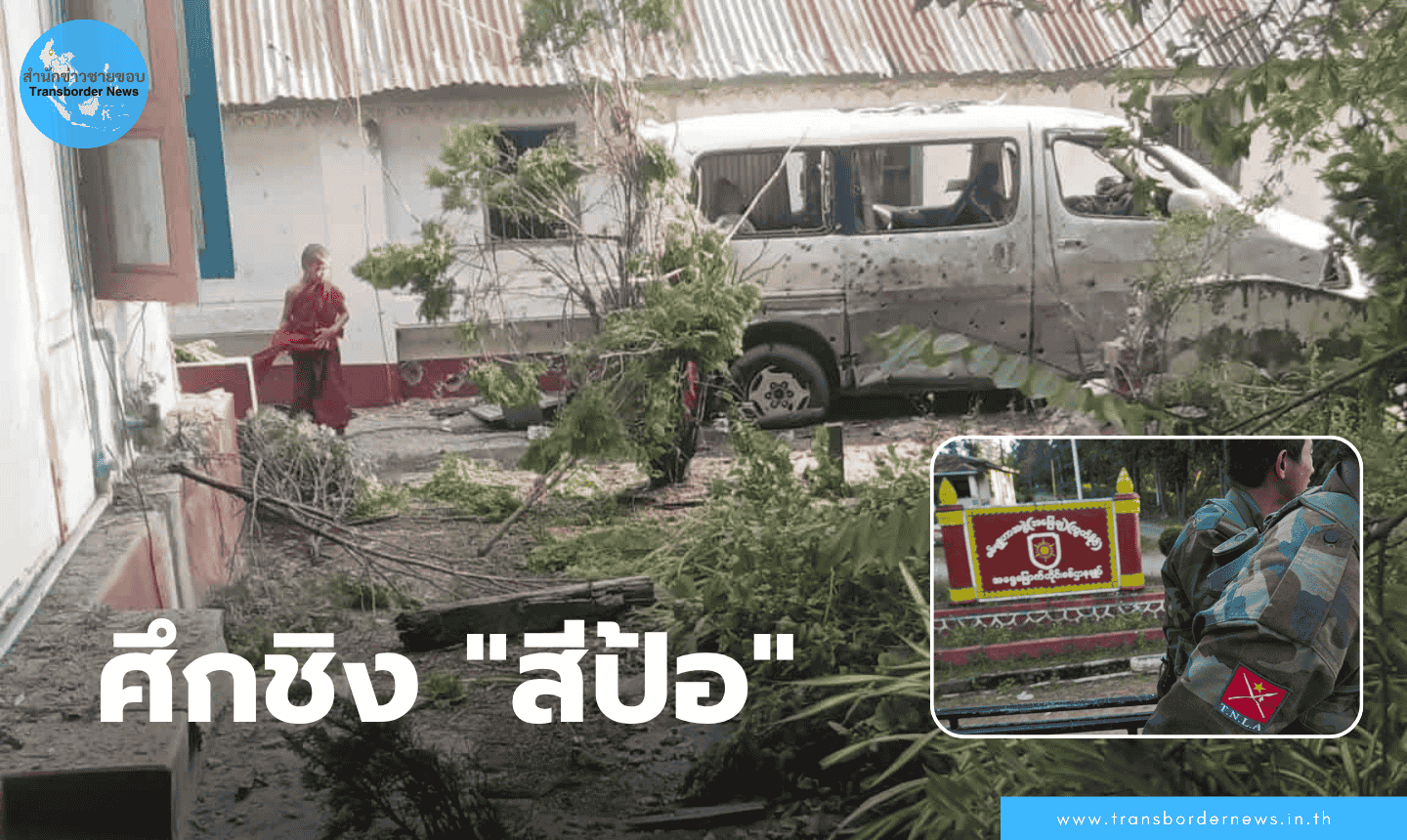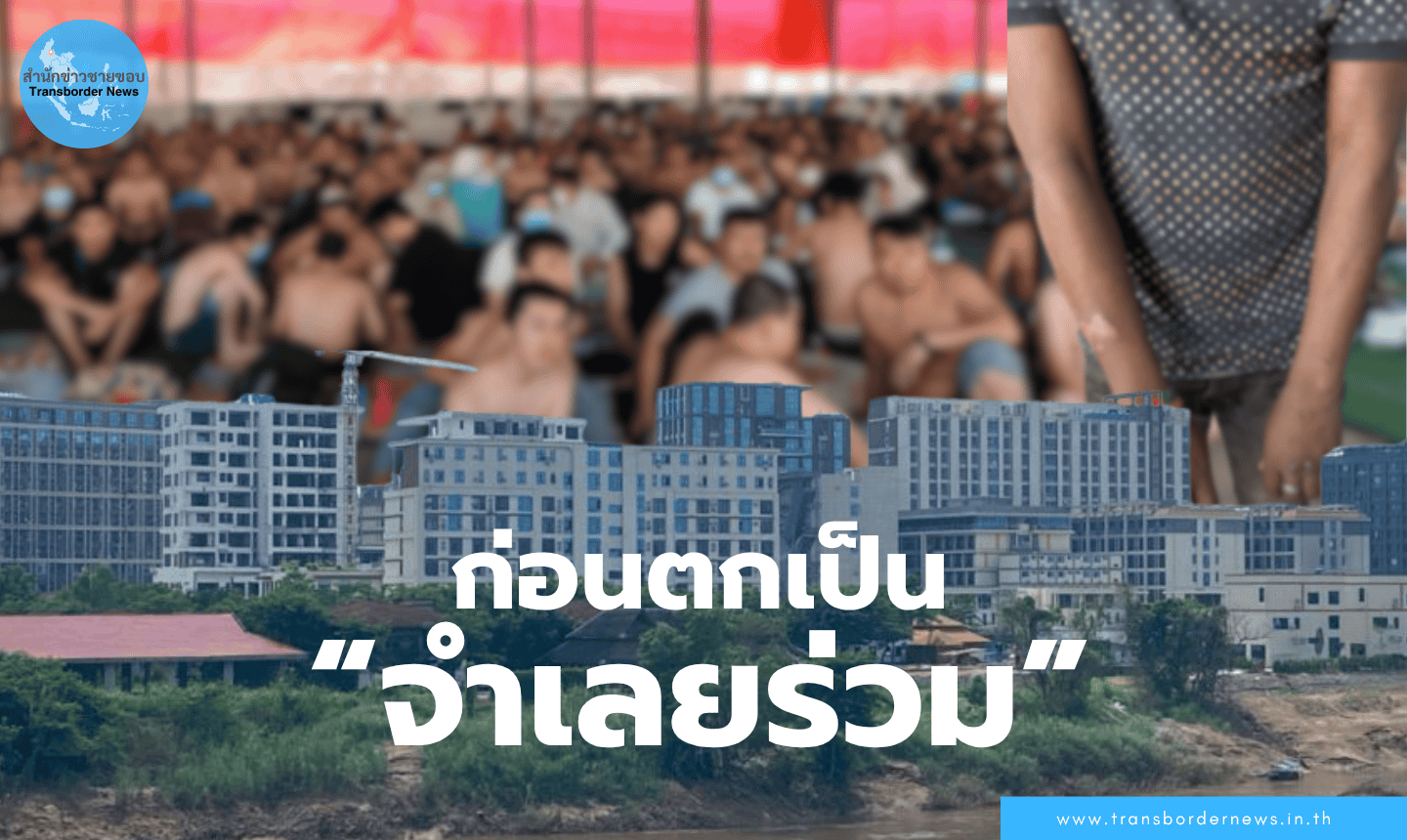
(Translated from original article in Thai by Transborder News)
Among the ethnic forces that are fighting against the Myanmar Coup now, the Karen National Liberation Army (KNLA)- the armed wing of the Karen National Union (KNU)- is one of the most targeted insurgent groups that the Myanmar Army wants to get rid of.
Saying that KNU is an important target of Myanmar Army is not quite right, though, because one wing of the KNU, led by General Mutu Sae Poe, Commander-in-Chief and KNU President, agreed to join the Nationwide Ceasefire Agreement (NCA) on October 15, 2015 which developed into the New Peace Architecture (NPA) of Aung San Suu Kyi’s government.

However, another wing of KNU, led by Zippora Sein, the former KNU Vice President, disagreed. She had many of the KNU Brigades back her up because of the long distrust of the Myanmar Army.
General Baw Kyaw Heh, KNLA Vice Chief of Staff and former 5th Brigade Commander, was one of KNLA’s leaders who objected to the agreement all along as he considered it as a ploy by the Myanmar Army.
Brigade 5 has its headquarters located near Day Bu Noh, in the Mutraw District of Karen State. Its border is connected to the Salween River along Thailand’s Mae Hong Son province.

Throughout the 118 kilometres that the Salween flows alongside Thailand, Karen State on the opposite side contains bountiful natural resources and teak forests. Karen people have long lived on both sides of the river since ancient times, before the border between Thailand and Myanmar was drawn up.
KNU’s 5th Brigade, which was long under General Baw Kyaw Heh’s command, is recognized as a powerful brigade. He is popular, widely admired and trusted by grassroots Karen people.
After Senior General Min Aung Hlaing executed the Coup d’Etat, he was strongly resisted by the Myanmar’s citizens. General Baw Kyaw Heh stood on the side of those citizens and was ready to welcome the dissidents who had to escape from the Myanmar Army. At the same time, local leaders have asked the Myanmar Army to remove their armed forces from the 5th Brigade (81 Myanmar Army camps in total, 14 of which are on the Salween River). These areas belong to the KNU but they fell into the Myanmar Army’s hands following some internal conflicts within the KNU.
KNU soldiers have surrounded the Myanmar Army’s bases for 3 months, shutting down their supply routes. Despite this, on 20th March 2021, 700 bags of rice were found at Mae Sam Lab port, waiting to be delivered to the Myanmar Army.
On March 27th, KNU soldiers seized the Myanmar Army base at Thi Mue Hta, opposite to Mae Sariang District. Following this, the Myanmar Army sent jet fighter planes to attack the 5th Brigade’s Day Bu Noh base and surrounding communities. The attack lasted for a few days, resulting in Day Bu Noh residents and other villagers fleeing and seeking shelter along the Salween River.
“This airstrike was to frighten the villagers, to destabilize their lives,” was the opinion of General Baw Kyaw Heh regarding that event. He highlighted that the Myanmar Army often attacks people’s homes to frighten them, and conducts regular patrols so that villagers are unable to stay. In short, the Myanamar Army’s actions have destroyed villager’s basic infrastructures.
General Baw Kyaw Heh, also known as “Peu Baw” (Grandpa), which is a term given to highly respected Karen elders, is currently 60 years old. He was born in Ta Da Der Village in Mutraw District. When he was young, the Myanmar government began their “four-cuts strategy” in Karen State and he has wanted to be a soldier since. He graduated from Kawthoolei Middleschool in Manerplaw, and joined the KNLA right away, working closely with General Bo Mya, the KNU Commander at that time. He has operated on the front lines since the beginning of his career.

“The latest attack by the Myanmar Army was not due to our declaration to side with the people, they have long planned to attack us. They have been planning this for at least the last 4-5 years,” the KNLA Commander analyzed, informed by his experiences fighting the Myanmar Army during his whole life.
“The Myanmar Army had been sending drones to identify our locations and bases in Karen State. The Army then followed to these areas. After that, it was time to attack and destroy the surveyed target. So they attacked us.”
When he was asked repeatedly if the attack was due to KNU’s siding with the citizens who are resisting the Coup, the General said that the attack was instead a long-term operational plan of the Myanmar Army.
“What is happening now may not all correlate, but at least some parts do. The main goal of the Peace Process that the Myanmar Army was conducting was to sabotage the Karen Revolution. They learned about how to sabotage a revolution from the Sri Lanka’s government approach with the Tamil. The Peace Process plan infiltrated our economy and then they established governing structures in our areas. In the end, if they cannot take over these areas, they must destroy them, along with the people living there. Personally, I think the Myanmar Army has been following their plan step-by-step since 2012 and then in 2015 (when they signed the NCA).
With considerable military experience since 1985, he joined the KNLA Commando Special Program and then operated from Manerplaw until conflicts in 1996 forced him leave the Command Center in Manerplaw.
A year later, he was assigned as a Special Combat Commander of the 5th Brigade, and as an Operations Advisor for the 1st, 2nd and 3rd Brigades. Following that, he worked with the commanders of those brigades closely. Later, while still a young adult, he was appointed as the 5th Brigade Commander, and then later appointed as the KNLA Vice-Chief of Staff in 2012 until now.

These experiences have allowed him to be able to clearly read the intentions of the Myanmar Army.
“Now, is the time for their last step- to wipe us out completely. What happened during the Myanmar Army Coup was that they wanted absolute power and they did this according to their plan.”
The KNLA Vice-Chief of Staff spoke about the KNLA attack on Thi Mue Hta base and the responding jet fighter attacks from the Myanmar Army, which some people saw as a revenge attack from the Myanmar Army, “It is not like that. The Myanmar Army had already planned to conduct the airstrike. We had been reporting about the planned airstrike for months. We heard that on 27th March, Myanmar Armed Forces Day, they would be conducting some kind of operation. They had a plan for that day, so did we. We also needed to conduct our operation because the Myanmar Army base is our land.”
He also said that another reason KNU had to seize the Myanmar Army base this time was because Karen people did not want the Army in their area, as it is their Motherland. The KNU fulfilled their duty as its people demanded. As such, they needed to drive the Myanmar Army out of their lands.
When asked if the mysterious 700 bags of rice at Mae Sam Lab port on 20th March 2021 (which were to be delivered to the Myanmar Army via the Salween river) was another reason for the Myanmar Army to be upset, he said.
“The only way that this cruel power, and the people’s anxieties and fears that result from it will vanish is by fighting and destroying the Myanmar Junta. We cannot defeat them alone or as only one ethnic group. Everyone oppressed from every ethnicity needs to cooperate and fight collectively in their own locations. They must use their geographic location, capacities, chances, and opportunities with all their might. If we can eradicate this authoritarian power, civilian’s security, their lives and assets, freedom will return.”
“The Army has made elaborate plans. These plans were different but have been implemented consecutively. Many people asked if they are correlated. I can just say that their highest goal is to disarm the opposition forces and bring them under the Myanmar junta. We cannot accept that.”
Nevertheless, war always causes unavoidable impacts. People needed to escape the airstrikes from the Myanmar Army during March 27th – 28th. It was estimated that ten thousands of people fled and hid in the forests. Most of them headed towards the Salween River in order to cross the border and seek refuge in Thailand.
“We need help this time, only getting help from the villagers will not do. We are short of supplies in war times like this. Living conditions are harsh. I am thankful for the people who have offered help, but have faced problems with transportation across the border. I know that Thai people want to help.” The leader of KNU was expressionless when asked about the people who had fled, but there was unconcealed anxiety in his eyes.

The first wave of refugees seeking a safe place in Thailand was on March 28th. The number has increased until the beginning of April. Meanwhile, the jet fighters and drones continued to fly over Day Bu Noh, frightening everyone and making them unable to go home. Meanwhile, the villagers along the Salween River were gradually pushed back. By April 22nd, there were almost no more refugees remaining on the Thai side of the Salween River.
Another influx began after a month passed, when KNU soldiers seized the Myanmar Army base at Thaw Laeh Ta, opposite to Mae Sam Laep. Following that was when the Myanmar Army attacked once again, and thousands of people who were still hiding in the jungle on the Karen side needed to come back to the Salween and hide again.
“For the authorities, I need them to understand that these people are suffering. I want them to be flexible in order to help on humanitarian grounds. That would be of the greatest assistance, which, if one day it could be repaid, we will. Nowadays, it is still difficult.” The KNLA General expressed his gratefulness for the generosity and friendship that his people have received from Thai citizens during these times of trouble.
General Baw Kyaw Heh said that he would like every concerned party to consider the people’s situation. For example, the firing from the Myanmar Army on food and humanitarian assistance supply boats should not be allowed to happen because people’s living conditions is an urgent issue that must be addressed. The Myanmar Army should not consider that the sending of these was about them.
“The (Myanmar) soldiers were sent to the border. They should not impede or do something like firing at the boats just to frighten people. In towns, they shoot people directly. It has been like this also at the border. They are creating enemies and troubles for people.”
When he was asked about the plans to restore Day Bu Noh community that suffered from the airstrikes, the General said that he needs to constantly assess the situation and he will continue to do so whenever the opportunity comes.
“Now we are assessing the impacts and trying to help the people survive. We want them to go back to their homes and their fields. They already prepared for this year’s growing season and need to grow their rice. If they cannot do that, it would be difficult in the long run. They would not have food for the next year and other problems will emerge. If the Myanmar Army is still in charge, the long term difficulties still persists. Overthrowing them is the only way.”
Siding with people’s sufferings has made this General popular among Karen people. He once said that his wish is for peace for people in both Karen State and Myanmar country as a whole. As such, when people who resisted the Junta needed a place to escape to, KNU was among the first ethnic groups to declared their solidarity and welcomed these people.
“KNU uses our forces for freedom and protection, but the Myanmar Army uses theirs for oppression and seizure of power. Myanmar has many diverse ethnic groups. Everyone must have freedom and rights. We do not want the Junta. We are seeing unarmed people killed, tortured, and tormented. It was an absolute seizure of power. We disagreed.”
The KNLA leader said that the Myanmar Army unlawfully seized control, affecting everyone in the country, every ethnic group, including Burmese civilians. The only way out of this is that every ethnicity- Karen, Kachin, Chin, Arakan, Burmese and others- needs to cooperate.
“We need to fight together and eradicate this authoritarian military power. If we do not cooperate, we will continue facing this cruel oppression as we always have. City people are experiencing fear, cruelty, and death. Villagers are also experiencing fear, hiding, and death. These did not happen in one state or one city but in every state and every city in Myanmar.”
“The only way that this cruel power, and the people’s anxieties and fears that result from it will vanish is by fighting and destroying the Myanmar Junta. We cannot defeat them alone or as only one ethnic group. Everyone oppressed from every ethnicity needs to cooperate and fight collectively in their own locations. They must use their capacities, chances, and opportunities with all their might. If we can eradicate this authoritarian power, civilian’s security, their lives and assets, freedom will return.”
The KNLA General wanted to communicate to all that “It is time for everyone, every ethnicity, from any place to fight together, fight in your ways, courageously to break free. We fight the unrighteous rule of the authoritarian power. We need to demolish the constitution, and with it all the rules that exploit and create injustice in our society, leading to oppression and torture.”
Today the battle along the Salween riverbanks between the Myanmar Army and KNU soldiers of General Baw Kyaw Heh’s 5th Brigade still rages on.
Most importantly, the morale and courage of KNU soldiers is high because they have not only been supported by their own people but even from people far away.
Notes: General Baw Kyaw Heh gave this interview during the last week of April. Transborder News already published a part of it. The interview content was rearranged for this article.




